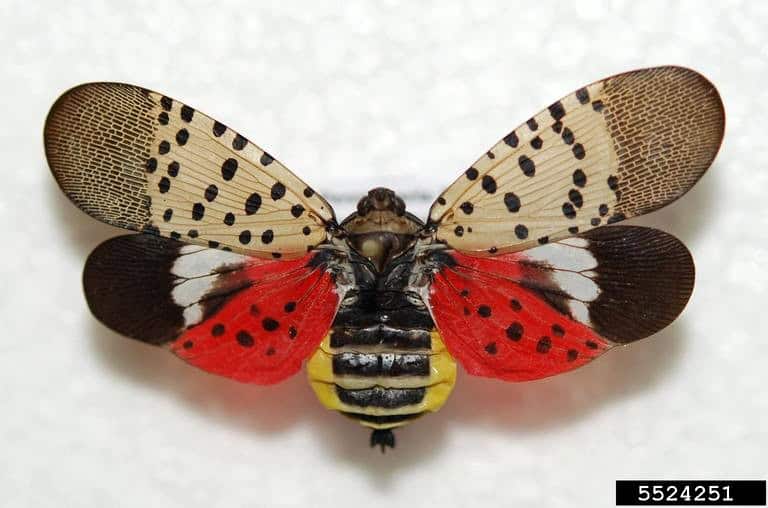Rutgers Cooperative Extension of Monmouth County has been receiving an increasing number of reports from concerned citizens about the spotted lanternfly. The spotted lanternfly is an invasive insect that is native to China, India and Vietnam and is now in the United States.
According to a Sept. 14 press release from the county, in 2014, the spotted lanternfly was accidentally introduced into Pennsylvania and has since spread to New Jersey. The spotted lanternfly is not harmful to humans or animals, but it can feed on the sap of more than 70 plant species including grapes, fruit trees, ornamental landscape plants, and hardwood trees.
Monmouth County Commissioner Lillian G. Burry has been working with the agricultural community to address the challenges they are facing due to this invasive pest, according to the press release.
“This is not a matter to take lightly,” said Burry. “Stopping the spread of the spotted lanternfly will require a coordinated public effort to prevent economic losses to our local farms and businesses.”
New Jersey Secretary of Agriculture Douglas Fisher recently announced the state Department of Agriculture (NJDA) has added Monmouth County to the spotted lanternfly quarantine zone, which also includes Morris, Middlesex, Essex, Union, Burlington, Camden, Gloucester, Hunterdon, Mercer, Salem, Somerset and Warren counties.
“The spotted lanternfly’s excellent hitchhiking skills on all types of transportation have allowed it to spread, making it necessary to expand the quarantine zone,” Fisher said. “While we have crews working throughout the state to treat infestations of the spotted lanternfly, we are seeking the public’s assistance by asking anyone who sees this pest to destroy it whenever possible.”
Individuals are asked to inspect their vehicle for the presence of the spotted lanternfly before traveling outside of the quarantine zone to reduce its spread to other areas, according to the press release.
Businesses that regularly travel in and out of the quarantine zone are required to obtain a permit by completing a free online spotted lanternfly training at https://extension.psu.edu/slf-permit-training-nj
Soon the spotted lanternfly adult females will begin to lay eggs. An adult female spotted lanternfly can lay up to three egg masses during its life cycle, and each egg mass contains between 30 and 50 eggs.
While the adult spotted lanternfly cannot survive the winter, the egg masses do survive and hatch in the spring. Scouting for their egg masses and destroying them (as well as destroying the adult spotted lanternflies), will help prevent the spread of this invasive pest, according to the press release.
For instructions on how to scrape and destroy egg masses, watch a video at https://www.youtube.com/watch?v=WoFp_MbDiE8
Individuals who see a spotted lanternfly are asked to report the sighting to the Department of Agriculture using the online reporting tool at https://www.nj.gov/agriculture/divisions/pi/prog/pests-diseases/spotted-lanternfly/#reporting-tool
Additional information regarding control options and management strategies for the spotted lanternfly can be found at https://www.nj.gov/agriculture/divisions/pi/prog/pests-diseases/spotted-lanternfly/homeowner-resources/ and at https://njaes.rutgers.edu/spotted-lanternfly/

